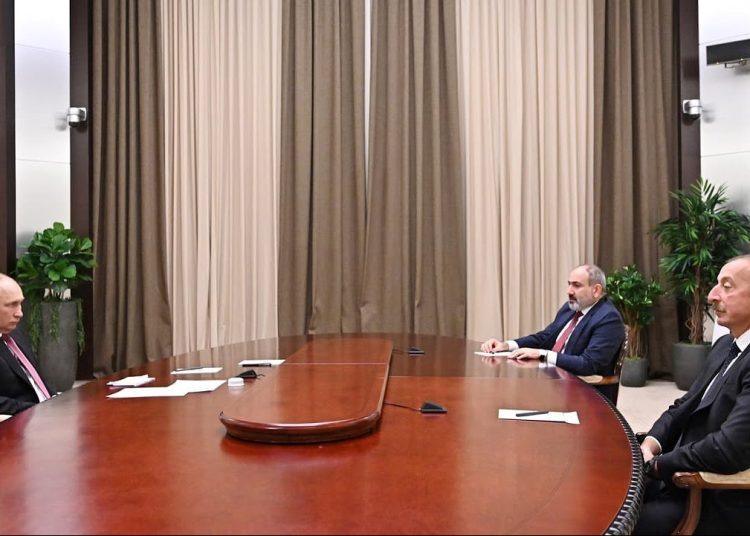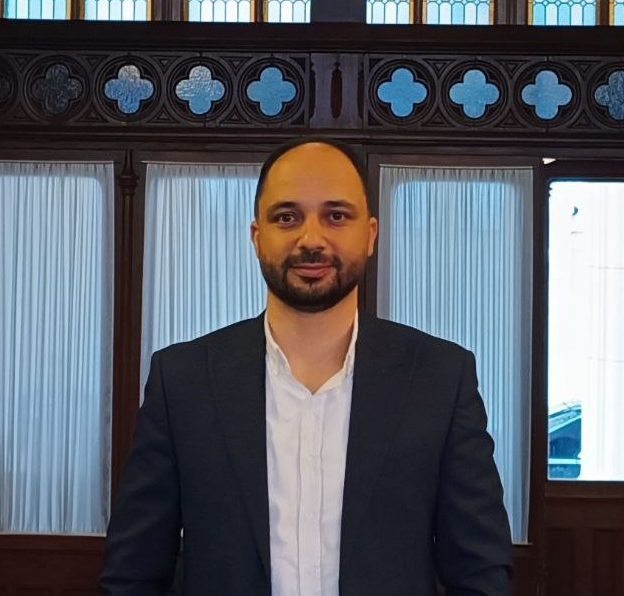Russia’s role in the Nagorno-Karabakh dispute has been gradually diminishing over the past four years, causing concern in Moscow about its waning influence in the South Caucasus.
By Ali Heidari
Following the 2020 Nagorno-Karabakh war, which resulted in Azerbaijan’s victory, two critical issues emerged in the South Caucasus: the legal-political status of Nagorno-Karabakh and the transportation route from Nakhchivan to Azerbaijan.
In 2023, a one-day operation by the Azerbaijani army in Nagorno-Karabakh led to the collapse of the self-proclaimed Armenian political regime in the region, establishing Azerbaijani control and resolving one of the most significant issues in the South Caucasus over the past three decades. This operation also caused approximately 120,000 residents to flee to Armenia, potentially creating future legal challenges for Baku, as these individuals may pursue human rights cases against Azerbaijan in international forums.
Subsequently, Baku focused on establishing communication lines, including a corridor through Armenia’s Syunik province to connect its territories and create an international transit route for goods and energy. The core of the Armenia-Azerbaijan dispute lies in the interpretation of Article 9 of the November 2020 Moscow Tripartite Agreement. This agreement designates Armenia as the guarantor of communication lines between Nakhchivan and Azerbaijan, which Baku interprets as a corridor under its control—a point Armenia has contested for the past four years.
Recently, Azerbaijan has reportedly agreed to road and rail lines under Armenian control, but Yerevan now demands the establishment of these lines without Russian observers, contrary to the agreement’s stipulation of Russian Federal Security Service (FSB) supervision. Yerevan has proposed involving an international (likely European) company instead, provoking Russia’s ire. Moscow views this as part of Armenian Prime Minister Nikol Pashinyan’s strategy to distance Armenia from Russia over the past six years.
Following Armenia’s announcement of not renewing the Russian military base contract, potential withdrawal from the Collective Security Treaty, military agreements with France and the United States, and anti-Russian cultural measures, Russia perceives the Pashinyan government as seeking to exit its sphere of influence, especially as Moscow becomes more entangled in the Ukraine war.
Yerevan’s latest move is bilateral dialogue with Azerbaijan for peace and normalization of relations, which, if successful, could significantly reduce Russia’s presence in the South Caucasus. This context explains Russian Foreign Minister Sergey Lavrov’s recent criticism of Armenia’s corridor policy and President Vladimir Putin’s repeated offers to mediate between Armenia and Azerbaijan, which Yerevan has rejected.
Armenia aims to break its three-decade geopolitical deadlock with Azerbaijan and Turkey, a goal Pashinyan advanced by overlooking Azerbaijan’s takeover of Nagorno-Karabakh. Azerbaijan has also made a positive step by withdrawing its initial claim to control the corridor, aiming to resolve this three-decade crisis swiftly. Azerbaijan agreed to exclude the transit line issue from negotiations to reach an initial agreement for normalizing relations and address it later.
The final obstacle to normalizing relations is the Armenian constitution’s reference to parts of Azerbaijan’s territory as Armenian. Baku has repeatedly insisted that this part of the Armenian constitution be amended. Yerevan has announced plans to initiate constitutional reforms in 2027.
If this process continues as it is, we will likely see initial agreements next year, with the crucial step of normalization occurring in 2027. This normalization will not be achieved through the creation of the Zangezur Corridor, as desired by Baku and Ankara, but rather through the establishment of the Syunik Road. Azerbaijani President Ilham Aliyev and Turkish President Recep Tayyip Erdogan have recognized this shift in recent months and are adjusting to the new circumstances, particularly in light of Iran’s firm stance on the corridor and any border changes.
Meanwhile, Russia’s role in the dispute has been gradually diminishing over the past four years, causing concern in Moscow about its waning influence in the South Caucasus. This worry prompted the Russian Foreign Minister to openly criticize Armenia, though it yielded little effect.
The views expressed in this article are those of the author and do not necessarily reflect the positions of Iran Nuances.






